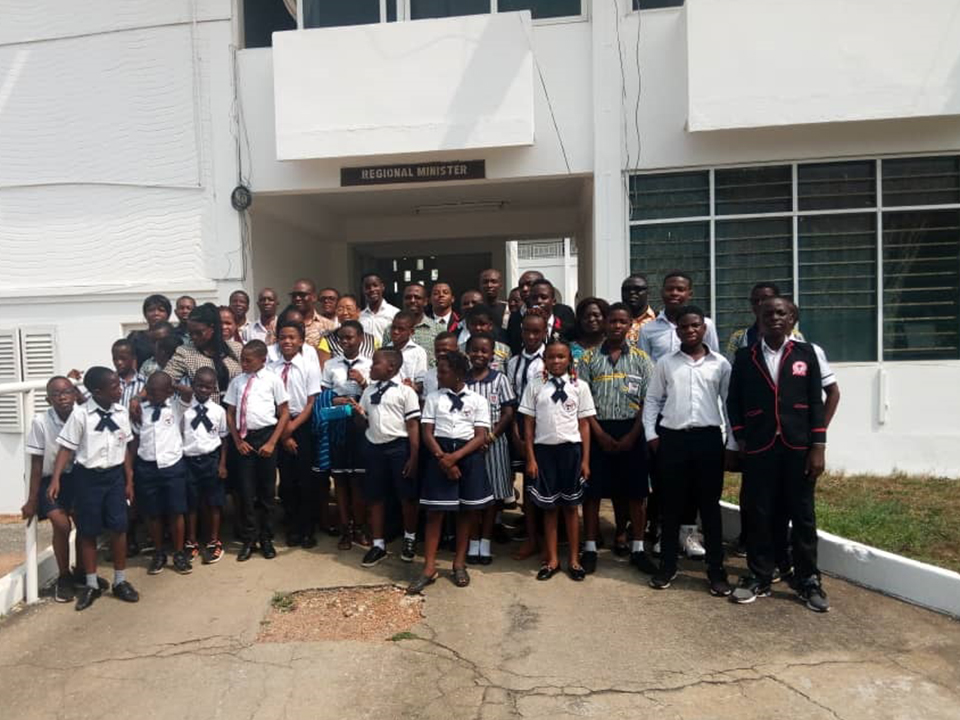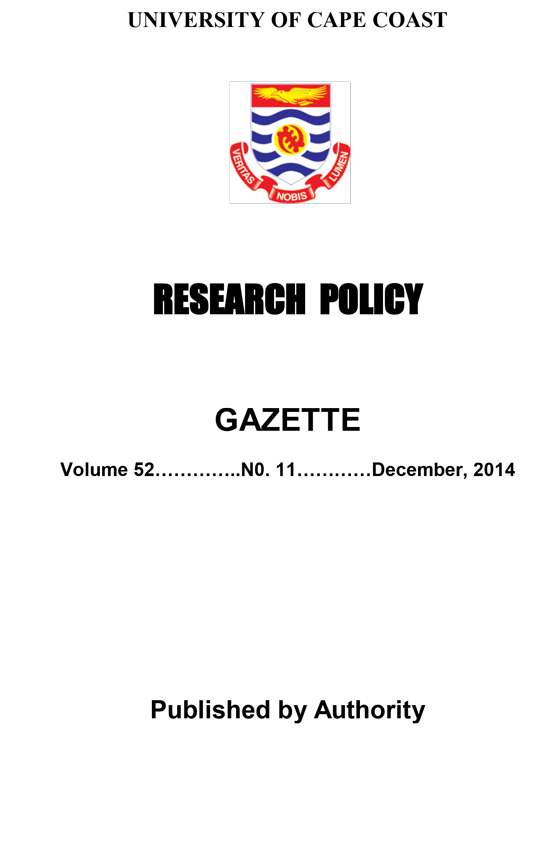A delegation from Jiangsu University (JU), China, has paid a courtesy call on the Vice-Chancellor, Prof. Joseph Ghartey Ampiah, to explore new areas of collaboration.
The University of Cape Coast and Jiangsu University have been partners since 2009. The visit was aimed at strengthening and expanding the scope of the collaboration.
Delegation from Jiangsu University
The delegation from JU was made up of the Vice-President, Prof. Zhang Jijian; Executive Director of Faculty of Agricultural Equipment, Prof. Mao Hanping; Dean of School of Pharmacy, Prof. Xu Ximing; Director of Department of State-Owned Assets, Prof. Zhao Xicang and the Director of International Office, Prof. Li Zhongxing.
New Areas for Collaboration
Leader of the delegation, Prof. Jijian said the visit was to discuss joint training and award of degrees in the areas of management, engineering and medicine. He noted that his university was also interested in exchange of faculty members and students and joint research with UCC.
According to him, JU considered UCC as one of its cherished international partners and, therefore, it was important to strengthen the relationship between the two institutions. “UCC is one of the best Universities in Ghana and we are proud to be associated with UCC. I believe that we can achieve a lot together through this collaboration,” he noted. He said through the collaboration, JU has trained some lecturers from UCC to acquire PhD in Computer Science and other programmes.
Impact of UCC and JU Collaboration
Responding, the Vice-Chancellor, Prof. Joseph Ghartey Ampiah, said the collaboration has had a positive impact on both institutions. He thanked the delegation for expressing interest in expanding the scope of the collaboration. “I am happy about the areas we are going to work together with you especially the joint research. I believe it will help give a global perspective to the research we do,” he noted.
Prof. Ampiah said UCC has just established the School of Pharmacy, hence the new proposal would help to adopt best practices through faculty and student exchanges as well as joint research. “We are happy to kick start the School of Pharmacy with the support of JU and I can see a lot of prospects between our two institutions,” he added. He was hopeful that further discussions with the concerned Provosts and Deans would help accelerate the partnership.
The delegation later had a meeting with the Provosts of the College of Health and Allied Sciences and College of Agriculture and Natural Sciences and the Dean of the School of Agriculture to discuss details of the new areas of collaboration.
Present at the meeting were the Registrar, Mr. Kofi Nyan; the Senior Assistant Registrar, Office of the Vice-Chancellor, Mrs. Georgina Asi Owusu and the Junior Assistant Registrar, Centre for International Education, Mr. Alfred Ghartey.






